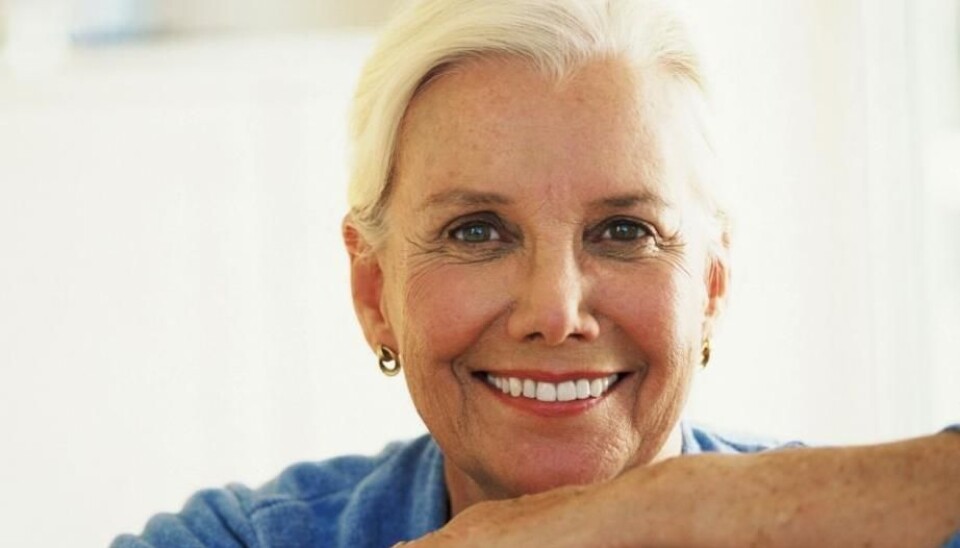
Vitamin D prolongs life
A type of Vitamin D known as D3 helps elderly women live longer, according to a review of the entire scientific literature.
Elderly women who take a daily dose of vitamin D3 live longer than those who do not, a new meta-study indicates.
Researchers have gone through all the experiments in which vitamin D was given to healthy people in randomised clinical trials and compared the effect with a placebo pill or no treatment.
"We found a small but significant effect on mortality among elderly women," explains consultant Christian Gluud, the head of the Copenhagen Trial Unit (CTU) at the Copenhagen University Hospital. "We have managed to ascertain that given a daily vitamin D supplement, women who have reached menopause live slightly longer than those who are not given vitamin D."
Could also prolong the lives of young people
Unfortunately we have not been able to identify the most appropriate dose. This is an important issue because taking too much vitamin D increases the risk of developing e.g. kidney stones. This will be a subject of future research.
Gluud and his colleagues have trawled through scientific databases and identified 37 major scientific experiments involving a total of 75,000 participants, a majority of whom were women over the age of 60.
The scientists do not yet know whether the D3 vitamin also reduces mortality among men and younger individuals. They believe that, in particular, young people who do not get enough vitamin D from their diet or enough exposure to sunlight would benefit from a daily dose of vitamin D3 supplement, although new research will be needed to clarify this.
Only one of four types has an effect
The new study reveals the importance of which type of vitamin D the elderly take.
There are four different types of vitamin D: alfacalcidiol, calcitriol, D2 and D3, and the researchers wanted to see whether all these types could reduce mortality or whether only one of them was able to do so.
"We found that only vitamin D3 had a mortality-reducing effect," says Guul. "Participants who took this type of vitamin D over a two-year period showed a mortality rate six percent lower than those who did not take the supplement."
The tablets you buy at the pharmacy and in supermarkets contain precisely this D3 type of vitamin.
Unambiguous effect after thorough check
The scientists' conclusion strengthens the theory that vitamin D is good for the body, but this is the first time they have been able to document the ability to actually reduce mortality.
"Although we subjected this literature to the most restrictive statistical analysis imaginable, the effect we found was unambiguous," says co-author Jørn Wetterslev.
Many other benefits
Although the new study points to an effect, it does not tell us anything about the biological mechanisms involved. The scientists have, however, made some qualified guesses:
"Elderly women are exposed to the risk of hip fracture due to osteoporosis, one factor which contributes to mortality. Vitamin D supplements strengthen the bone structure. Several studies have shown that taking vitamin D results in fewer bone breakages among the elderly and that breakages become less serious," says Wetterslev.
But vitamin D also has many other effects on the body likely to influence mortality. For example, several studies show that vitamin D strengthens circulation in the heart, helps prevent cardiovascular disease as well as cancer.
Vitamin D strengthens the immune system
On the whole, the vitamin seems to play a central role in the body's immune system, so it is highly tuned when it comes to combating disease.
"Whatever the reason may be, our study shows that a vitamin D supplement reduces mortality in older women, for which reason I would advise them to consult their doctor with a view to taking vitamin D," says Gluud.
ScienceNordic showed the results to Professor Arne Astrup, a consultant at the Copenhagen University Hospital, who also does research into the health-promoting effects of vitamin D. He finds the study interesting:
"The analysis found that supplements containing vitamin D reduce mortality among elderly women, primarily those in hospitals and care homes. Although the effect is not exactly huge, even ten percent is important. The elderly in particular constitute a group which suffers from vitamin D deficiency, and this emphasises the importance of all elderly people taking vitamin D, e.g. in tablets containing a dose of up to 800 IU," says Astrup.
Read the article in Danish at videnskab.dk








